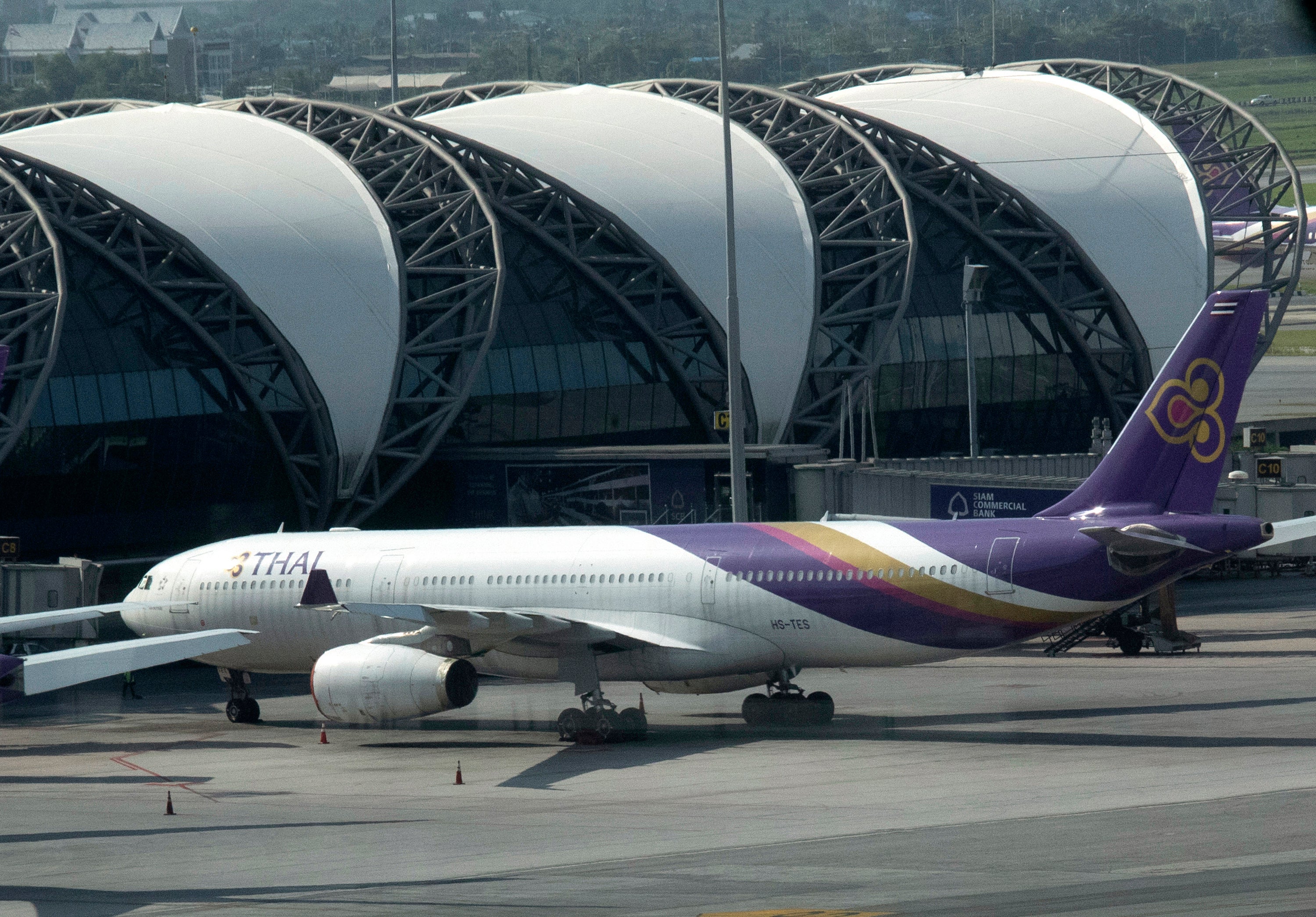Creditors of Thai Airways approve reorganization plan
Thai Airways says the creditors holding most of its debt have approved a business reorganization plan

Your support helps us to tell the story
From reproductive rights to climate change to Big Tech, The Independent is on the ground when the story is developing. Whether it's investigating the financials of Elon Musk's pro-Trump PAC or producing our latest documentary, 'The A Word', which shines a light on the American women fighting for reproductive rights, we know how important it is to parse out the facts from the messaging.
At such a critical moment in US history, we need reporters on the ground. Your donation allows us to keep sending journalists to speak to both sides of the story.
The Independent is trusted by Americans across the entire political spectrum. And unlike many other quality news outlets, we choose not to lock Americans out of our reporting and analysis with paywalls. We believe quality journalism should be available to everyone, paid for by those who can afford it.
Your support makes all the difference.Creditors of Thai Airways International holding 91.56% of the airline’s debt have approved a business reorganization plan, the company announced Wednesday in a filing to the Stock Exchange of Thailand
The plan, including three amendments added in consultation with the creditors, now needs final approval by Thailand’s Central Bankruptcy Court on May 28.
The carrier has generated losses for several consecutive years. It ran up 2.11 billion baht ($67.2 million) in losses in 2017, 11.6 billion baht ($369.5 million) in 2018, and 12 billion baht ($382.2 million) in losses in 2019.
Losses skyrocketed to 141.1 billion baht ($4.5 billion) in 2020 because of the COVID-19 pandemic, which saw the airline cease virtually all operations for an extended period.
The restructuring plan pegs the company’s total debt at 410 billion baht ($13.4 billion). According to the approved plan, it will apply for a new long-term loan or revolving loan worth 50 billion baht ($1.6 billion).
The airline initially sought a 54 billion baht ($1.7 billion) bailout loan from Thailand’s government after the onset of last year’s crisis, but was refused.
The Cabinet in May last year approved a reduction in the government’s stake in the airline to below 50% as part of the reorganization plan, shrinking the Finance Ministry’s stake from 51% to 47.86%
With the government reducing its stake, the airline lost its status as a state enterprise. The action also meant that the airline’s state enterprise union was automatically dissolved.
The airline has already downsized by cutting 8,700 positions, of both full-time and contracted employees. It currently has around 21,000 employees, with plans to reduce the total to 13,000 to 15,000 by early next year.
The statement to the stock exchange said five people have been appointed to administer the plan.
Two are the airline's acting Chief Executive Officer Chansin Treenuchagron and its former CEO Piyasvasti Amranand. The others are Finance Ministry official Pornchai Thiravet, former Energy Minister Siri Jirapongphan, and Executive Vice President and Manager of Bangkok Bank’s Legal Department Kraisorn Barameeauychai.